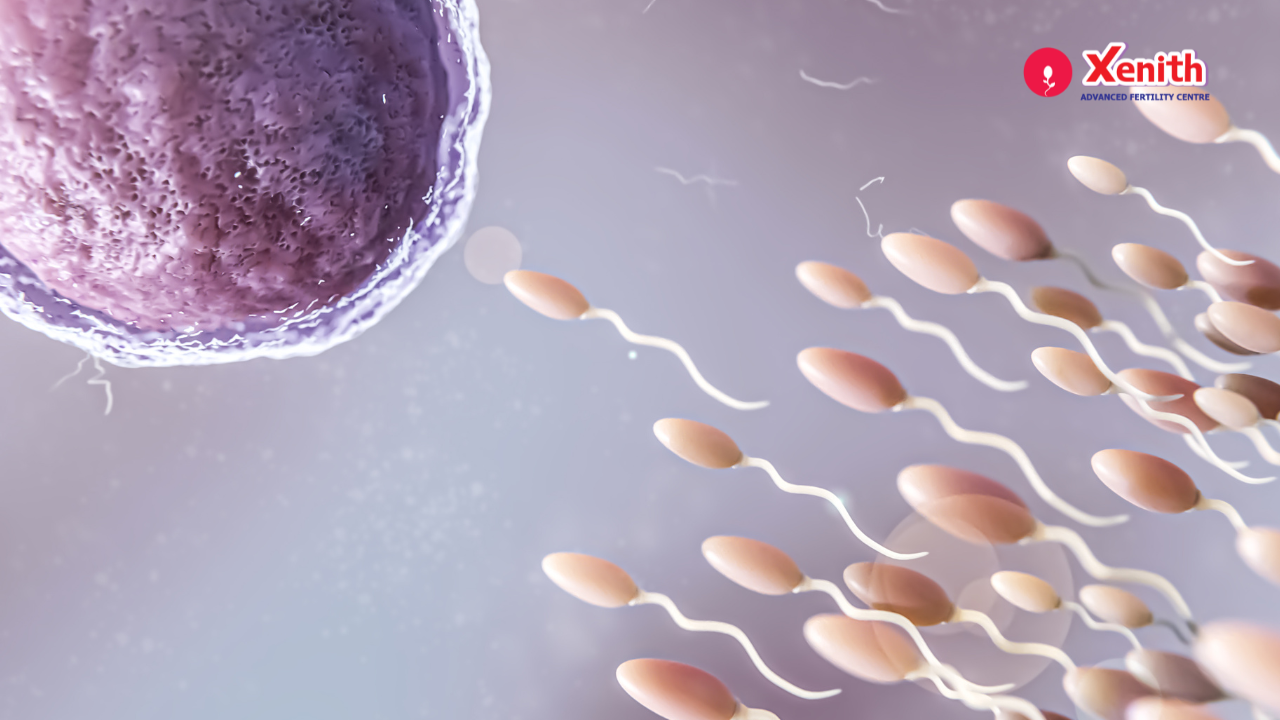IVF is a series of procedures where the woman’s ovaries are stimulated to produce more than one egg and these eggs are retrieved, combined with sperm in a laboratory setting and the resulting embryo is transferred back to the woman’s uterus for implantation potentially leading to a successful pregnancy. Intracytoplasmic sperm injection (ICSI) is a procedure used along with IVF in cases of severe male infertility where a single sperm is injected directly into the egg. One of the factors leading to a successful IVF treatment, is to have a healthy embryo which is dependent on a good quality egg and sperm. In order to find out if the sperm quality is good, a semen analysis will need to be done.
What is meant by sperm quality?
Sperm quality refers to the overall health of the sperm and its ability to fertilize an egg. Many factors influence fertilization when undergoing IVF, such as sperm count, sperm motility, sperm morphology, and the amount of DNA fragmentation.
- Sperm count- As per WHO guidelines, fertility is more likely if a single ejaculate contains at least 15 million sperm per mL.(1) Less sperm in the ejaculate could make it harder to get pregnant naturally. In IVF, the semen is washed and only the healthy sperm are used to fertilize the egg, while it only takes one healthy sperm to fertilize an egg when using ICSI.
- Sperm motility- refers to the ability of the sperm to move and different motility parameters are studied. They look at what percent of all sperm are motile, what percent of sperm are motile in a mL of semen, how many total sperm in one ejaculate are motile and how fast they are moving as well as the type of movement of the sperm itself. Progressive motility refers to the sperm swimming in a more or less straight line or in large circles rather than narrow circles or irregular movements. It is considered normal if at least 32% of the sperm move progressively.(1) However as mentioned earlier, with IVF, only the highly motile sperm are used or with ICSI only one healthy sperm is needed.
- Sperm morphology- refers to the shape, size, and structure of the sperm and this can also contribute to IVF success. Typically, the sperm have oval heads and long tails. The tail enables the sperm to swim towards the egg, and the sperm’s head contains the genetic material as well as the tip of the head has enzymes to help penetrate the egg’s surface. Abnormalities in the morphology of the sperm can affect its ability to penetrate the outer layers of the egg for fertilization to occur. Although with ICSI, the sperm is directly injected into the egg.
- DNA fragmentation-refers to the damaged or abnormal genetic material inside the sperm. The sperm is made up of 23 chromosomes and the egg is made up of the other 23. They join together to make up the genetic material or DNA of most cells through which proper growth and development occurs in the human body and also the information to form a healthy embryo. DNA fragmentation can cause infertility leading to problems with having a baby. Studies have also found a correlation between abnormal sperm morphology and DNA fragmentation where the embryo may fail to develop or implant, resulting in miscarriage, or may cause genetic abnormalities within the offspring, even for those undergoing IVF. Recent advances in the conventional microscopy methods as well as computer-assisted sperm analyzers (CASA), and other tests have made it easier to identify damaged sperm.
So, IVF can usually increase the chances of pregnancy even if the sperm count or motility is low and so are less of an issue. However, for optimal IVF success, normal sperm count and motility are preferred.
Is there anything you can do to improve fertility?
New sperm are produced continually in the testicles and take about 42 to 76 days to mature. Advanced paternal age and/or poor lifestyle can negatively impact sperm health producing less healthy embryos. Some of the best ways to promote sperm health include eating a healthy diet, doing regular exercise, stopping smoking, limiting alcohol consumption, maintaining a healthy weight, preventing sexually transmitted infections, managing stress, avoiding exposure to toxins like lead and pesticides, avoiding certain medications, treating some medical conditions amongst various other things. If you haven’t been able to conceive after a year of unprotected sex, a fertility specialist could be able to find out the cause and provide proper treatments to put you on the journey to parenthood. The experts at Xenith Advanced Fertility Centre would love to discuss any questions you might have about this topic.




